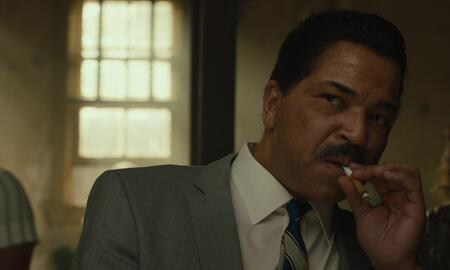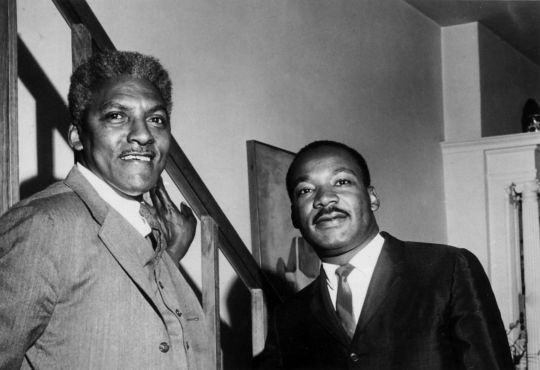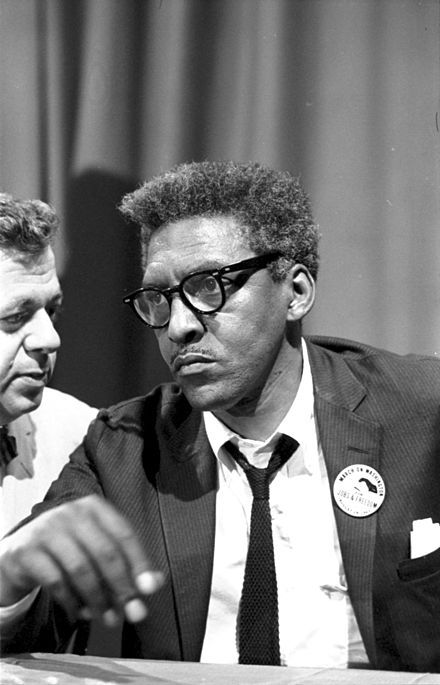#apparently its the leonard bernstein biopic thing
Explore tagged Tumblr posts
Text
literally my reaction I saw it was trending and was like “what the fuck. why are we trending”

wh. why is judaism trending
#apparently its the leonard bernstein biopic thing#which kind of sucks because you think maybe its going to be positive#and then its just antisemitism
70 notes
·
View notes
Text








for the record this is why musician biopics All without exception annoy me. they just drop hints of the sort of understanding the musician has of their music and of music in general, and they treat music like its some sort of magical and emotional expression when its also intellectual and physical and athletic and cerebral and also tangible--also rooted--also very very real, despite its apparent abstraction. people can explain it, it is possible to explain it, and one of the people most famous for being able to explain was leonard bernstein. and yet the movie is full of shit like this: the magical inspired mind of the magical musician with music powers whose talent is a different world from his personal life which is just such a contradiction, right? how human this "great man" was, and how flawed, and doesn't that make the whole story interseting? not the craft, the craft isn't the interesting part of the story. no, the movie has to be about what's behind the curtain and the "great man" has to be deconstructed and nothing of the things he spent his life in devotion to have narrative weight. as if the easiest way to deconstruct a legendary person isn't to make the things he does seem less legendary.
he's just "talented." so the movie is going to happily use his music and take his music's particulars of tone and timbre and story (and mahler's and schumann's and copland's and gershwin's), but the movie is not going to talk about it.
2 notes
·
View notes
Text
Rustin

Awards buzz first thrust George C. Wolfe’s biopic about U.S. civil rights activist Bayard Rustin, the openly homosexual (largely use this word and "gay" as the then common "labels") African American architect of the landmark 1963 March On Washington, onto my radar. What’s not to like, right? and onto my (Netflix) watchlist it went.
Plopping up after another biopic, the beautifully mounted but ultimately hollow Maestro, Rustin might have benefitted from a favorable comparison – both films examine the lives of queer men who in one way or another strived for social change in postwar America – not that Maestro even mentions Leonard Bernstein’s philanthropy and support of progressive causes like the Black Panthers, even if Tom Wolfe coined the term “radical chic” to question the sincerity of celebrity political activism, after attending a Bernstein benefit for the Panthers .
youtube
Thanks to Netflix’s algorithms and playback mode, the final strains of music from “Candide” accompanying Maestro’s end credits briskly segued into Branford Marsalis’ jazzy Rustin score. The film begins with onscreen text informing us that discrimination based upon race was declared unconstitional by the U.S. Supreme Court in 1953. This is followed by wordless horrific images of the humiliation African Americans (here primarily young women) had to endure from whites (largely male with the occasional hateful looking woman) when exercising their constitutional right to attend school. After the film’s title appears briefly, we hear offscreen “things have to change and they need to change now.” It’s 1960 and we witness various civil rights activists, including Martin Luther King (Aml Ameen) and Bayard Rustin (Colman Domingo), planning a non-violent demonstration at the Democratic Convention that summer. Threats of Gandhi-inspired civil disobedience in the 1940s successfully pressured the Roosevelt Administration into ending discrimination in the military and defense industries, so why not use this method again? Yet not all African American leaders are down: NAACP (National Association for the Advancement of Colored People) head Roy Wilkins (Chris Rock in an unusual serious role) thinks the movement should tread even more lightly to achieve its goals. Longtime Democratic New York City Congressman Adam Clayton Powell, Jr. (Jeffrey Wright), on the other hand, seems primarily angry about a movement he doesn’t control and worried about how a protest might affect his standing within the party. Clayton Powell leans on King to drop the idea and Rustin, too, while he’s at it, otherwise there will be rumors about just how tight King and his charismatic and effective advisor really are. The protest is called off; King reluctantly dumps his friend.
(The Obamas’ company Higher Ground executive produced the film; did Barack Obama think about his former pastor, Reverend Jeremiah Wright, with whom he severed ties during his first campaign after Wright spouted antisemitic statements and conspiracy theories? While, unlike the smear campaign against Rustin, Obama’s rupture with Wright was understandable, it might have caused considerable soul searching. Wright later somewhat toned down his rhetoric.)

Rustin finds himself in the political wilderness, living in New York, taking a unfulfilling job with a lefty nuclear disarmament NGO – an all-white joint with, as it turns out, a homophobic boss who claims he just wants to keep Rustin on the straight and narrow. Rustin enjoys the company of a younger white man - smart, sweet, devoted (at times to a fault) Tom Kahn (Gus Halper) and has a support system of accepting friends.
Soon, it’s 1963, and President Kennedy holds a televised speech promising further civil rights legislation. This is received with skepticism (civil rights were apparently not Kennedy’s top priority) which turns into outrage when that evening, images of particularly brutal police retaliation against demonstrators, including hosing down children, appear on TV. “Things have to change,” and this time, Rustin is determined to make that happen. He reaches out to labor activist (head of the Brotherhood of Sleeping Car Porters) A. Philip Randolph (Glynn Thurman) and floats the idea of a massive non-violent march, for “jobs and freedom,” on Washington. Randolph is game. Rustin and King reconcile. And so, with Randolph nominally the chief organizer and Rustin running the show in the background, they set out to recruit the other “Big Six” civil rights organizations (in addition to the Brotherhood the NAACP, SNCC - Student Nonviolent Coordinating Committee, CORE - Congress On Racial Equality, King’s Southern Christian Leadership Conference and the National Urban League) while Rustin sets up a tight logistics operation.

Rustin doesn’t always successfully avoid sentimental biopic clichés, but the film crackles with comic energy when it shows how the dedicated team, under Rustin, both drill sergeant and seducer, manages the nuts and bolts of organizing the march. How many narrative films walk audiences through political grunt work? - from first brainstorming sessions, fundraising for busses to bring demonstrators from around the country to and from Washington to securing food supplies (peanut butter and jelly trumps cheese sandwiches) and Rustin’s contrasting security meetings with the African American brotherhood within NYPD (open to non-violent, de-escalation tactics) and the all-white D.C. police force delegation (latently racist, overstepping boundaries, possibly in cahoots with the F.B.I.). One especially satisfying moment: Rustin, again under pressure and somewhat out of commission, gazes appreciatively at his team as they have become so self-motivated and professional that the well-oiled machine can practically run without him.
Before the big day rolls around, the NAACP still is hesitant unless compromises are made. One: no White House, the protest stays at the Mall (one of the funniest exchanges during the prep sequence shows Rustin asking how many people are needed to surround the White House – a volunteer thinks this is a joke set up before he conveys she better get right on this). And two: the event is shortened from two days to one – considering the messy logistics of tent accommodation and longer leaves of absence from work, maybe Wilkins was being sensible here?

Just when the NAACP is finally on board, Clayton Powell throws a another spanner into the works: again he blackmails the group with Rustin’s long severed Communist Party ties and a 10-year-old rap sheet for lewd conduct with two (adult) men. Wright plays Clayton Powell as a full-fledged villain, jealous of King’s power base in the South and defending tooth and nail his own in New York and D.C. His torpedoing of the 1960 protest is of public record, but didn’t find any mention of his backstabbing in 1963. On the contrary, while Clayton Powell’s long career ended amidst corruption scandals and he was always considered rather self-serving, he is credited for moving civil rights legislation forward and serving his Harlem constituency. This is one instance of the film playing somewhat fast and loose with facts – or fudging them into confusion.

Fortunately, this time, Clayton Powell’s blackmail attempt is thwarted and everyone rallies around Rustin as the guiding force of the march. The big day, August 28, 1963, comes. At first, local police estimates a crowd of 75 before the masses flood the Mall. Martin Luther King holds his legendary “I Have A Dream” speech before 250,000-300,000 people. It was the largest peaceful protest to date. Afterwards, the White House invites reps of the “Big 10” organizations (somewhat confusingly, the film earlier stated that the “Big Six” had mushroomed due to the participation of more unions, but historical records generally speak about the “Big Six”). Rustin contentedly stays in the background, helping to clean up the Mall.
After a final montage which somewhat awkwardly blends archive and staged footage, the standard biopic wrap-up titles add that comprehensive civil rights legislation was passed and signed into law in 1964 (by Kennedy’s successor Lyndon Johnson, a Texas Dixiecrat – conservative Southern Democrat – who nevertheless became more committed to civil rights than his slain predecessor was). That same year, King was awarded a Nobel Peace Prize. Rustin continued his advocacy work and in 1977 met his longtime companion with whom he remained together until Rustin’s death in 1987. In 2013, 50 years after the march, President Obama post-humously awarded the Presidential Medal of Freedom to Rustin.

The titles don’t mention King’s increasingly vocal opposition to the Vietnam War and stronger demands for economic equality. And while King became somewhat more radical in the months before his asassination, Rustin was criticized for allegedly “selling out.” This meant cosying up to the Democratic party und big unions like the AFL-CIO, eschewing Black Power politics and later affirmative action (Rustin thought any form of “identity politics” was counterproductive as it could alienate necessary white allies) and adopting an anti-communist/anti-Soviet stance through his conditional support of the war (rollback of communism - yes, punitive military action against Vietnamese civilians - no). Contrary to his anti-communism, Rustin remained a lifelong socialist through his advocacy of social justice by wealth redistribution. And he was a gay rights activist until the end.

This aspect of Rustin’s life is brought to life through Colman Domingo’s compelling performance. He portrays Rustin as a self-confident, sexually attractive man who defies the homophobia of his era without ever becoming a victim. Rustin’s two key relationships, on the other hand, are not fleshed out. Tom stands by his man with little complaint when Rustin’s flirtations with other men become intense (Rustin admonishes Tom not to act like “Mrs. Rustin”). Tom is a more doormat-like version of Scott Smith (played by James Franco), the similarly long-suffering boyfriend of gay activist and later politician Harvey Milk in Gus Van Sant’s Milk – the screenplays for both films were written or co-written by Dustin Lance Black. As indicated in the film, when Rustin tells Tom he can’t allow himself to fall in love, but Tom will always be his family, the real-life Rustin and Tom Kahn remained friends and even co-authored an article about evolving protest into party politics. Rustin’s second significant relationship in the film was with the fictional Elias Taylor (Johnny Ramey), a NAACP lieutenant and married clergyman, groomed to take over his father-in-law’s congregation. After Elias helps to shoot down Rustin’s suggested march (the soon-to-be KKK murder victim Medger Evans is the only NAACP member who gets and supports it), he approaches Rustin in the men’s room. Elias flirts rather unabashedly; the two convene to a gay bar for drinks and begin an illicit affair. Elias is a mealy-mouthed cipher whose primary attraction for Rustin might be the challenge of converting him to the “cause.” The affair goes on long enough to piss off Tom but is cut short when Elias’ wife Claudia calls Rustin late at night to order him to call it off. The affair foregrounds Rustin’s free-spirited (in his mind) or promiscuous (other people’s judgement) lifestyle and serves the plot as it is Elias who suggests that Rustin reconcile with King for the sake of the movement.

Rustin was not the most accomplished film of 2023 (one wonders how a more seasoned filmmaker like Ava DuVernay would have filmed the story; theater director George C. Wolfe has one other film, Ma Rainey’s Black Bottom under his belt). But it was arguably one of the most thought-provoking. Its images of political activism as a group effort and compelling, complex portrayal of an openly gay African American man in the 1960s whisk audiences back to pre-internet times when protest was organized with considerable effort but arguably had more impact than today’s online-driven activism. Nostalgic, cinematic comfort food or inspiration to counter myriad current injustices? In any case, if Bayard Rustin hadn’t actually existed, he would’ve needed to be invented.
********************************
Recommended: Brother Outsider: the Life of Bayard Rustin (2003), documentary by Nancy Kates and Bennett Singer. Here we see Rustin also speak at the Mall in August 1963, which for some reason the fiction film omits.
youtube
Update 1: Colman Domingo was nominated for the Best Actor - Drama Golden Globe (Cillian Murphy took home the award for his portrayal of J. Robert Oppenheimer in Christopher Nolan's eponymous biopic), BAFTA and Oscar. He is the first Afro-Latin actor and, along with Jodie Foster (Best Supporting Actress nominee for Nyad), the first out LBGTQIA* person to be nominated for playing an out LBGTQIA* role.
Update 2: American documentary filmmaker James Blue, a pioneer of participatory filmmaking with grassroots communities, directed this film about the March on Washington:
youtube
#bayard rustin#colman domingo#civil rights#film#cinema#movie#discrimination#lgbtqia#history#usa#Youtube
1 note
·
View note